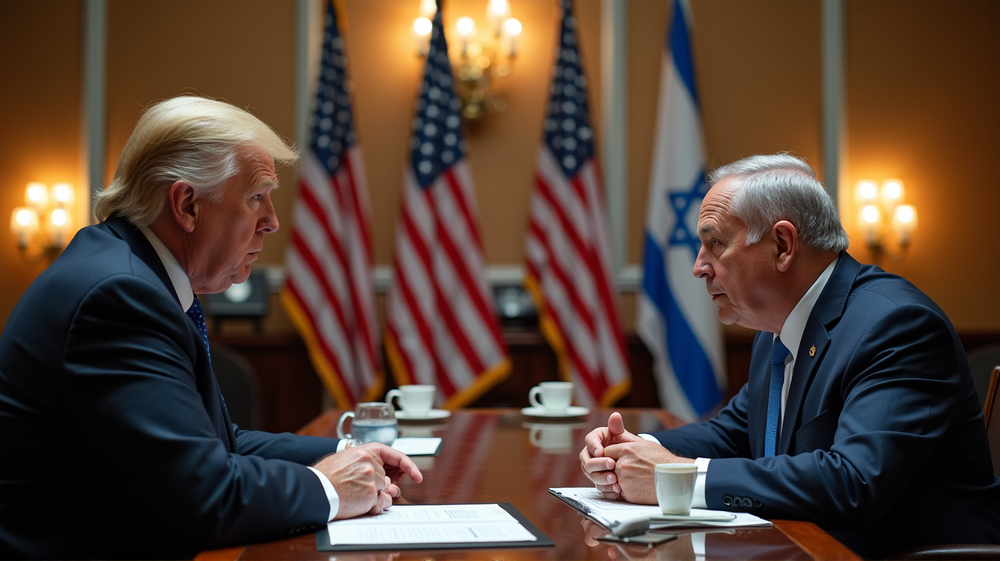In a whirlwind of diplomatic negotiations, Israel finds itself under increasing US pressure to finalize a critical agreement with Hamas, ahead of President Donald Trump’s anticipated visit to the Middle East. This strategic tour, set to commence on May 13, is seen as a pivotal moment in strengthening regional alliances. However, it has sparked waves of tension between Washington and Tel Aviv.
The Urgent Need for an Agreement
Israel’s need to finalize a deal with Hamas has become not just a diplomatic priority but a “matter of great importance,” as indicated by sources close to the situation. According to a report from Haaretz, the US has warned Israel of potential isolation if it fails to cooperate ahead of Trump’s visit. This stark warning underscores the gravity of the situation, as notions of independence may leave Israel navigating regional politics alone.
The Disappointment with Netanyahu
Reports have surfaced revealing US Special Envoy Steve Witkoff’s somewhat critical stance towards Prime Minister Benjamin Netanyahu. As shared by insider leaks requested by Witkoff, there’s a sentiment that Netanyahu may be attempting to manipulate the negotiations toward his ends. This internal discord has been compounded by Trump’s purported decision to proceed with his regional plans without Netanyahu’s influence, reflecting a growing rift between the leaders.
The Captives’ Plight
Adding a deeply human element to the complex geopolitics, the plight of captives is being spotlighted. Witkoff cautioned the families of Israeli captives, emphasizing the risks posed by sustained military pressure. The heavier price that could be paid by both the hostages and Israel itself brings a poignant urgency to the negotiations. Yet, government commentary remains elusive, with Strategic Affairs Minister Ron Dermer’s office declining to speak on the matter.
Trump’s Strategic Tour
As President Trump embarks on his strategic tour, set to include visits to Saudi Arabia, Qatar, and the United Arab Emirates, his plans are notable for the exclusion of Israel in the itinerary. This decision reflects unresolved tensions and adds a layer of complexity to US-Israeli relations. Despite potential evolutions in their diplomatic dance, the current stance suggests a cautious approach by the US president as he seeks broader regional engagements without being tethered to Israeli politics.
According to Palestine Chronicle, understanding these intricate diplomatic maneuvers is key to anticipating the shifts in US-Israeli relations as Trump steps onto the Middle Eastern stage.
The unfolding scenarios will be watched closely, with many anticipating whether these diplomatic efforts might pave the way for lasting peace or further deepen the divides. Only time will tell the outcome of this high-stakes game of international politics.












